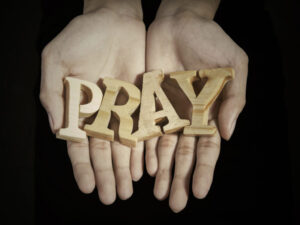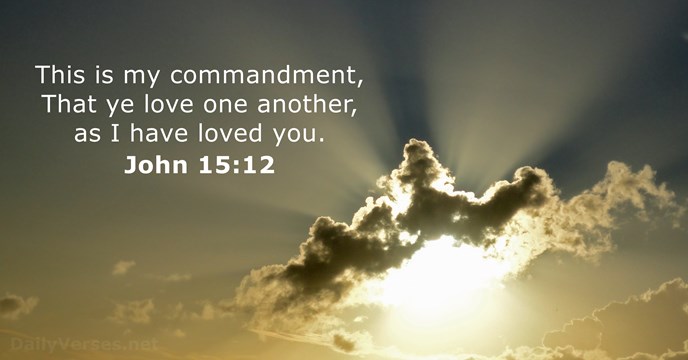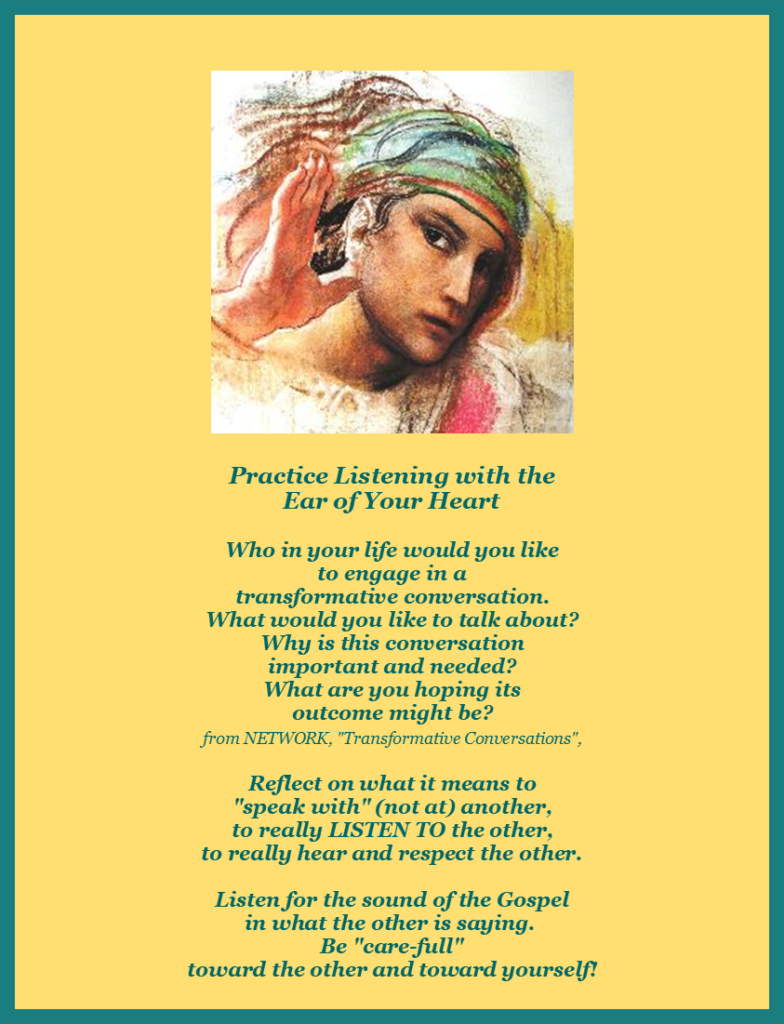Gospel
Even When You Say You Did Not Believe
I’ll repeat the last line of that Gospel reading: “Yet even when you saw, you did not later change your mind and believe.”
Speaking in St. Petersburg (FL) on Friday (September 25) Florida Gov. Ron DeSantis lifted all restrictions statewide that were imposed to control the spread of the virus that causes COVID-19. In his words: “Every business has the right to operate.” The executive order will stop cities and counties from fining people for not wearing mandated face coverings. The governor says there are no signs of a possible “second wave of infections.” I am a bit skeptical of what signs of the times this man and many others are reading? And, who or what advice are they listening to?
In our country – in the U.S. – there have been more than 7 million confirmed COVID cases – and God only knows how many more unreported. There have been more than 200,000 deaths. In Florida there have close to 700,000 reported, confirmed cases (not counting those that go unreported) and 14,000 COVID-reported deaths. That is approximately 4500 more than the combined populations of (nearby) St. Leo, San Anton io and Dade City.
io and Dade City.
The daily reading from the Holy Rule, this Gospel, and other words we’ve prayed this past week, warn us about paying mere lip service to directives and about the danger of letting our diligence slip.
We heard Jeremiah say: The Lord searches the heart and examines the mind, to reward each one according to what their deeds deserve.” And the psalmist who reminded us: “God searches the hearts and minds … The Holy One knows our thoughts.” In the words of Benedict: “The disciple’s obedience must be given gladly, for ‘God loves a cheerful giver.’” If the disciple obeys grudgingly and grumbles, not only aloud but also in her heart, then, even though the order is carried out, their actions will not be accepted with favor by God, who sees that she is grumbling in her heart. She will have no reward for service of this kind.”
The evidence is all around us – the virus is still present in our world. We can’t dispute the fact that there is confusion, fear and challenges that cause us to reflect on how we interact with each other and the greater community. There is much soul-searching and a heightened awareness of the “hungers of the people of God.” (BSoFL Corporate Commitment) We need look no further than across the highway to witness the challenges of having university students on campus.
Yet, we still hear comments like: “it’s all a hoax – it’s only another form of the flu – I’m strong, I can fight it – She is my friend, they wouldn’t be here if she thought she was sick – the virus can’t be passed if we’re outdoors – it’s not in our part of the county – I’ll take an ibuprofen tonight, just in case – I don’t follow rules I don’t agree with or don’t like.” What is not said is: “I’m scared – I can’t think about it – I have too many other health issues – there is so much confusion, I gave up – it’s like climate change; the scientists will figure it out – I followed the CDC and our house restrictions for a while, but not anymore; if it comes, it comes – if God wants to take me, that’s OK – if I get sick it’ll be someone else’s problem – they’ll take care of me.”
That’s the sticking point. In truth, in time of illness, death or distress, we do care for each other. The question before each of us each day is: am I taking care of, not just myself, but am I taking the most solicitous care I can of the 14 others I live with? Do I keep in mind Jesus’ admonition: “Don’t do to others, what you would not want done to you. Love others as you love yourself.”
These are times when the yoke of obedience and submission can really pinch – more for some personalities than others. Listening to the “abbot” is one thing – listening to an external source, quite another: the bishops, local governments, the CDC, health departments, medical professionals … where do they rank in our promise of obedience??? Our “conversion of life”?
Hospitality to each other is another whole package. But, we know we are (like it or lump it) in these times -TOGETHER – either we will survive it without scarring OR the enemy: lack of diligence, carelessness, or disregard for others (the REAL fatal virus), will break through cracks in our walls. Even hands held tightly can weaken – so hold tight…. Try not to be the one who loses grip. Let us hold each other tightly in prayer and patience in the trials of “Safe at Home.” We’ve a “mile to go before we can sleep” – i.e. let up on our vigilance. Know and believe that God has a plan. Be patient with the divine timing in day-by-day revealing that plan. Remind yourself “the best IS yet to come.” Our ancestors in community got through the 1918 pandemic – so will we!
Peace – and good health and many blessings.
We’ll be praying in particular all this week for all health care workers and on Monday joining in spirit the Bishops for International Day of Prayer for Migrants, Refugees, Immigrants and Sojourners.
God bless you each!
~Reflection by Sister Roberta Bailey, OSB, Prioress
First reading: Ezekiel 18:25-28 Second Reading: Philippians 2:1-11
Gospel: Matthew 21:28-32
Continue ReadingPractice Listening with the Ear of Your Heart
A Line from Star Wars
In the 2nd reading for this 32nd Sunday in Ordinary Time, Paul says to the Thessalonians: Pray that the word of the  Lord may speed forward and be glorified.” Sounds like a line from Star Wars or the Narnia Chronicles. “Speed the Word of God forward.” Paul continues – “I am confident that you are doing and will continue to do as the Lord directs your hearts to the love of God and the endurance of Christ.” The “endurance of Christ.” A reminder that, yes, we are the hands and heart of Christ in our world.
Lord may speed forward and be glorified.” Sounds like a line from Star Wars or the Narnia Chronicles. “Speed the Word of God forward.” Paul continues – “I am confident that you are doing and will continue to do as the Lord directs your hearts to the love of God and the endurance of Christ.” The “endurance of Christ.” A reminder that, yes, we are the hands and heart of Christ in our world.
Relating to the Gospel seems a bit more tricky. The Sadducees are once again challenging Jesus… describing a most unlikely situation and quoting Moses as their authority. One woman being wed, in turn to seven brothers. Often Jesus answers a question with a question. He responds differently this time. But this time he uses the occasion for instruction. Actually, Jesus makes four points.
First: life here on earth and life after death are not alike. The kingdom of heaven is not simply an extension of the good things in this life. Even though some give the impression “if ice cream will make you happy, yes, you’ll have it in heaven.” Jesus makes it clear that eternity is more than just an extension of what we have here.
Second: Jesus explains that there is no marriage in “that age.” He doesn’t say that a married couple won’t know each other in the age to come, but, Jesus let us know rather that the relationship will be different.
Jesus’ third point, is that there is no death in “that age.” Jesus identifies the quality of life when He says “neither can they die anymore,” it’s all about eternal life.
The fourth thing Jesus points out, is that the redeemed will be “like” the angels in heaven – not that they will be angels, but “like” the angels they will be forever praising and serving God.
And, if we drill deeper into the Jesus story, we’ll discover that the Sadducees were impressed with Jesus. Like the twelve-year-old in the temple who amazed the people with his knowledge. The Sadducees congratulated Jesus on his logic and his use of Scripture. Jesus proved, from Scripture, that there are some references to life after death.
As we wrestle with questions about resurrection and after life, especially in this month when we honor our deceased Sisters and our loved ones. And, at times like this week’s Veterans’ Day celebrations, we confirm our belief in Jesus’ promise of life beyond this one. The trivia of this life loses much of its importance, while the values, the important things take on added meaning. Living with the assurance of heaven, we live differently, we live for God. The promise of eternal life is not just some pie in the sky hope for us. In eternity, in the everlasting life, we’ll be ourselves at our ultimate best and will be more loveable and more capable of loving than ever before. [And it would serve us well, also, to think about the one who just jostled our nerves: she’ll/he’ll be more loveable in the life to come.]
[I’ve a story to share but could not figure out how to slip it into the body or the reflection….]
A newly-assigned young pastor had just received his first visitor. The parish council president came by to visit him on a Sunday afternoon. The man was a highly respected member of this congregation for over 25 years and president of the Parish council.
It was a balmy – not too humid kind of day – unusual for a day in August. Taking advantage of the nice day, they were sitting on the back porch of the rectory. The man seemed uneasy but slowly started to speak, “Father, first off I want to tell you this is a personal matter – nothing to do with Parish council business. I want to share this with you, and seek your advice. I’ve never told this to a soul, it’s extremely difficult to tell you this now. Well, here goes: “My wife and I have had a fight almost every day for the past 30 years of our marriage.”
The young priest was taken aback. He nervously took a sip of his sweetened Southern iced tea. He didn’t know what to say. He had never personally experienced that kind of thing growing up. Of course he’d taken counseling courses in the seminary. He wanted to respond with compassion. This was real life, not a set-up scenario from seminary days.
After a brief pause, he asked: “Everyday?” “Yes, just about every day.” “Did you fight before you came to church this morning?” “Yes.” “Well, how did it end up?” “It was different this time. She came crawling to me on her hands and knees.”
Trying to hide this shock, and keep his voice calm, Father ask: “Oh, my goodness what did she say?” “She pounded the floor with her hand and said in a voice that I’ve never heard before. It was low and commanding as she growled: “Come out from under that bed, you coward, and fight like a man!”
~Reflection by Sister Roberta Bailey, OSB, Prioress
32nd Sunday, November 10, 2019
2 Macabees 7:1-2, 9-14 2 Thessalonians 2:16-3::5
Gospel Luke 20:27-38
Continue ReadingIs it Time to Leave the Comfort Zone
There is a term popular today that seems to me to fit with this message of Jesus. The term is “comfort zone” which refers to those situations in which the person feels comfortable, safe, free from threat and challenge. The comfort zone is, for the person involved, a thoroughly comfortable place. Life there is marked by ease and familiarity.
 It’s natural to like one’s comfort zone, but most of us would admit that we should not remain there indefinitely. People do not become better or more mature or holier lingering in their comfort zone. That just doesn’t happen.
It’s natural to like one’s comfort zone, but most of us would admit that we should not remain there indefinitely. People do not become better or more mature or holier lingering in their comfort zone. That just doesn’t happen.
In the first part of this Gospel, Jesus cautions against sitting in the place of honor at a wedding banquet and advises taking the lowest place instead. But it is not simply a suggestion about etiquette. Something more is going on here. What Jesus advocates is not only for social occasions, but it’s meant to shape the entirety of our lives.
Choosing the seat of honor for ourselves is choosing the seat in our “comfort zone” – where we will be comfortable, safe, and free from the threat of interacting with strangers. Jesus cautions us against moving into a comfort zone all on our own as though we know what we’re doing, as though it’s something we need to do.
In the second part of the Gospel, he urges us to invite the crippled, lame, and blind when we give a luncheon or dinner, rather than friends, relatives, and rich people.
So there’s advice here for us whether we’re the guest or the ones hosting an event. Picture entering the banquet hall at our annual Gala. Do you gravitate toward a familiar face or approach a table of “new friends” you’ve just never met before. Do we sit in “us vs them” clumps?” Do we do what Jesus says – ensure that our guest list includes those who are different, people who may make us uncomfortable, but whose difference from us may bring us a blessing? This is what I think is so significant about our Thanksgiving Day dinner. We open our door, our hearts and our table expecting nothing in return. The blessing of being in a position to share is its own reward.
Jesus not only teaches us this lesson of stretching our comfort zone, he demonstrates it. His entire life, his public ministry, his passion and resurrection, is full of one episode after another of his expanding what could have become his comfort zone. Repeatedly, Jesus takes the low seat and invites unlikely types to be his guests.
 Jesus left the comfort zone of his place by his Father to come to earth as a tiny, helpless infant. Finally, he took the worst seat of all––on the cross. He left the comfort zone of his earthly life, allowed himself to be placed in a narrow grave in order to experience ever-expanding resurrected life. Jesus left the comfort zone within his family and friends on earth to become ever-present to all of us – to each one – at our beck and call.
Jesus left the comfort zone of his place by his Father to come to earth as a tiny, helpless infant. Finally, he took the worst seat of all––on the cross. He left the comfort zone of his earthly life, allowed himself to be placed in a narrow grave in order to experience ever-expanding resurrected life. Jesus left the comfort zone within his family and friends on earth to become ever-present to all of us – to each one – at our beck and call.
Every day we encounter situations that place us outside our comfort zone – that stretch us to new territory in welcoming the “stranger” – persons or experiences. Just be on guard against the inevitable danger that this place will soon become our new comfort zone.
I am reminded of the words of a hymn found in our Journey hymnals: “Now As We Gather” …. “Now as we gather, God’s chosen people … there are no strangers in this holy place.” When the stranger becomes friend, we must search out other strangers to befriend.
In this Gospel and in a hundred other ways, Jesus asks us that we do him the honor of keeping ourselves, our religion, our community from becoming trapped in some comfort zone. This is what it means to live the life of faith – a life on the ladder of humility as described in the Rule of Benedict … living in reverence and deference to others.
~Reflection by Sister Roberta Bailey, OSB, Prioress
First Reading Sirach 3:17-18,20,28-29 Second Reading Hebrews 12:18-19,22-24
Gospel Reading Luke 14:1,7-14
Continue ReadingTwo Roads Diverged in a Yellow Wood
 From this Gospel we sense that Jesus understands how difficult it is to wait. You can feel Him “chomping at the bit” as he says to this disciple: I have come to set the earth on fire, and how I wish it were already blazing!” If Jesus felt that way over 2000 years ago, how would He feel with the world situation today???
From this Gospel we sense that Jesus understands how difficult it is to wait. You can feel Him “chomping at the bit” as he says to this disciple: I have come to set the earth on fire, and how I wish it were already blazing!” If Jesus felt that way over 2000 years ago, how would He feel with the world situation today???
The Gospels and the Acts of the Apostles remind us over and over to have patience in waiting: wait for the Spirit, wait for the one who will baptize, wait for the fire of the Spirit. From the beginning of Jesus’ coming on earth He taught lessons in waiting. Mary and Elizabeth waited nine long months for the birth of their babes. The Holy Family waited three years in Egypt until it was safe to return to Nazareth. Remember Simeon’s prayer of gratitude (that we recite at Compline) upon seeing Jesus with Mary and Joseph in the temple. “Now, Lord – at last – I can die in peace for with my own eyes I have seen Your salvation.” Jesus waited 30 years to begin his public ministry, his baptism by his cousin John. He waited three days to respond to Lazarus’ sisters’ news that his friend had died. He waited 3 years for His Father to declare it was the right time: time for His last supper with friends, time for betrayal and crucifixion, time to rest in a borrowed tomb until he would be raised from the dead. He waited for the right time to reveal himself to Mary Magdalene in the garden and later to appear to the disciples and his mother Mary closeted in the upper room. He waited 40 days for the time to ascend and take his place at the right hand of his father.
And, what do we do? We tap our foot and mutter when we have to wait a few minutes in the grocery line, or for a red light to turn green, or for an elderly person to negotiate a curb or unfamiliar hallway; or move ahead in the food line at meal time; or hit “print” repeatedly on the computer thinking we can hurry it up. With a minor adaptation of words in the St. Louis Jesuit’s hymn TRUST IN THE LORD, we should be singing: “Wait for the Lord, you shall not tire; wait for the Lord, you shall not weaken. For the Lord’s own strength will uphold you, you shall renew your life and live.”
This Gospel is where Jesus reminds us that choosing to do good, to be good, requires on-going decision-making. To do the right thing, the good thing, won’t always be easy. Life isn’t conflict-free no matter how holy, easy-going or patient a person may be… living in a monastery can’t protect you. We’re all still human, with human limitations. But, we are followers of Jesus who said, “What makes you think I have come to establish peace? I tell you I have come to sow division.” He is alerting us to be prepared for difficult decisions; conflicts in life.
It’s good to get this reminder so when conflicts arise we don’t fret: “What did I do wrong? Why doesn’t God fix this situation?” Jesus is letting us know beforehand that He is right in the middle of the fray.” Remember He said: “I have come to set the earth afire.” He’s is telling us that when we make the decision to follow him, we may face opposition from some quarters, perhaps even from our peers, our family or friends. He probably cheers us on when conflicts arise and He can foresee the peace of reconciliation coming down the pike. Figuratively, if we engage the faucet, turn the nozzle, we have the hose that can put out the fire between us. The ashes will remain. Ah, but, out of the ashes will come new life: green plants, colorful flowers, and, yes – peace. Our choices to act or bite our tongue, cool our jets and exercise patience do shape our future. [If you are interested: this month’s Reader’s Digest has several stories illustrating how insightful, caring mentors change children’s lives.]
At the University’s Opening Mass on Monday, President Senese preempted one of my choices for this reflection when he quoted Robert Frost’s poem: “The Road Not Taken.” You can probably recite some lines from your 8th grade memory: (edited here for my purpose)
 Two roads diverged in a yellow wood,
Two roads diverged in a yellow wood,
And, sorry I could not travel both and be one traveler,
Long I stood and looked down one as far as I could
Then took the other, as having perhaps the better claim…
Oh, I kept the first for another day!
Yet knowing how way leads on to way,
I doubted if I should ever come back.
I shall be telling this with a sigh
Somewhere ages and ages hence: Two roads diverged in a wood, and I —
I took the one less traveled by,
And that has made all the difference.





